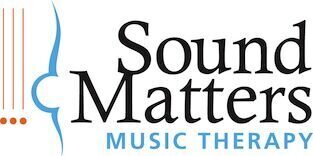technology
Music, the co-therapist
Music is such a great co-therapist. What a revelation for a music therapist to have. I can know this, and have known it intellectually, for years, but much of the time I have trouble trusting that the... Read MoreInaccessible music
I keep a limited amount of music on my iPhone, because it doesn’t have enough capacity to hold my whole library (and frankly some of my music is embarrassing). My husband has thousands and thous... Read MoreBluetooth keyboard teams up well
I have come across the best tool combination for note-taking and efficiency therein. Thomas the New Husband bought me an iPad for Valentine’s Day this year, and although I have been using it pre... Read MoreIn double-sickness
And I’m sick. Over the past two weeks, this cough I’d developed turned itself into bronchitis and I woke up Monday with a painful sinus infection. Two unrelated problems, that hit me at th... Read MoreGoodReader and its helpfulness
I have a tendency to acquire tools, materials, apps, and even instruments that I enjoy knowing I own, but do not actively use for as long as months after I buy or receive them. Enter: GoodReader. My ... Read MoreNewfound app: Propellerhead Figure
This is a cool app that my fiancé showed me. It’s called Propellerhead Figure, and though I’ve spent only limited time with it, I’ve already created some decent tracks. Pretty neat.... Read MoreNewfound resource: noahsdad.com
I heard a really nice interview with Rick Smith on The Coffee Klatch podcast. Smith is a father whose 15-month-old son, Noah, has Down syndrome. On his site, Noah’s Dad, Smith writes about di... Read MoreMonthly meeting
Tomorrow we’re having another monthly music therapist meeting. I am excited for this one; we’re including one of our friends who has moved to another state. I’ll be excited to see h... Read MoreNewfound podcast: WSJ on Small Business
One way in which I have been trying to branch out as a young professional is to develop my business skills. My fiancé offers endless assistance, for which I am grateful. I am also trying to seek out ... Read More- 2 of 3
- « Previous
- 1
- 2
- 3
- Next »
